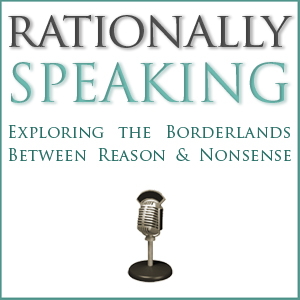Rationally Speaking #213 - Dean Simonton on "The causes of scientific and artistic genius"
Rationally Speaking Podcast
New York City Skeptics
4.6 • 787 Ratings
🗓️ 22 July 2018
⏱️ 66 minutes
🧾️ Download transcript
Summary
Transcript
Click on a timestamp to play from that location
| 0:00.0 | Today's episode of Rationally Speaking is sponsored by Givewell, a nonprofit dedicated to finding outstanding charities and publishing their full analysis to help donors decide where to give. They do rigorous research to quantify how much good a given charity does, how many lives does it save, or how much does it reduce poverty per dollar donated? You can read all about their research or just check out their short list |
| 0:20.9 | of top recommended evidence-based charities to maximize the amount of good that your donations can do. |
| 0:26.0 | It's free and available to everyone online. Check them out at give well.org. Welcome to Rationally Speaking, the podcast where we explore the borderlands between reason and nonsense. |
| 0:49.3 | I'm your host, Julia Galeith, and I'm here with today's guest, Professor Dean Simonton. |
| 0:55.7 | Dean is retired now, |
| 0:59.9 | but until recently was a distinguished professor of psychology at the University of California Davis, where his work focused on studying the determinants of scientific and creative genius. |
| 1:06.0 | He has over 500 publications, including 14 books, such as Origins of Genius, Darwinian Perspectives on Creativity, |
| 1:13.2 | and most recently, just coming out this year, the Genius Checklist, published by MIT Press. |
| 1:17.8 | Dean, welcome to rationally speaking. |
| 1:19.9 | I'm glad to be here. |
| 1:22.1 | So for starters, I'm curious how your work on Genius fits into the literature more broadly. Are there other people studying the determinants of genius? Is it sort of a well-defined field or is it the kind of research that's spread up between lots of different disciplines? |
| 1:39.3 | It's not something that is as focused as like research on creativity or giftedness or intelligence, areas |
| 1:48.1 | that are much more, you know, it's much more focused research on that are kind of kind of |
| 1:52.7 | kind of tender to studies of genius, but have received much more attention. |
| 1:56.9 | In fact, I think it's kind of interesting that for the first time there was a journal |
| 2:02.8 | of genius that just came out in 2016. And, I mean, that's very, very recently. Now, people have |
| 2:09.9 | been talking about genius for ages, but usually with a focus on, like IQ, or a focus on |
| 2:16.1 | psychopathology, or a focus on, you know, giftedness, you know, some |
| 2:21.5 | other thing that's related to genius, but not quite targeting genius directly. |
| 2:28.2 | And how would you say that your take on the question of what causes genius compares to your peers. For example, just, I mean, to |
| 2:38.0 | give you a sense of what I'm asking, like, if we were talking about the study of human rationality, |
| 2:42.3 | which is a field that, you know, I'm not a researcher myself, but I've read and written a lot about it, |
... |
Please login to see the full transcript.
Disclaimer: The podcast and artwork embedded on this page are from New York City Skeptics, and are the property of its owner and not affiliated with or endorsed by Tapesearch.
Generated transcripts are the property of New York City Skeptics and are distributed freely under the Fair Use doctrine. Transcripts generated by Tapesearch are not guaranteed to be accurate.
Copyright © Tapesearch 2025.

